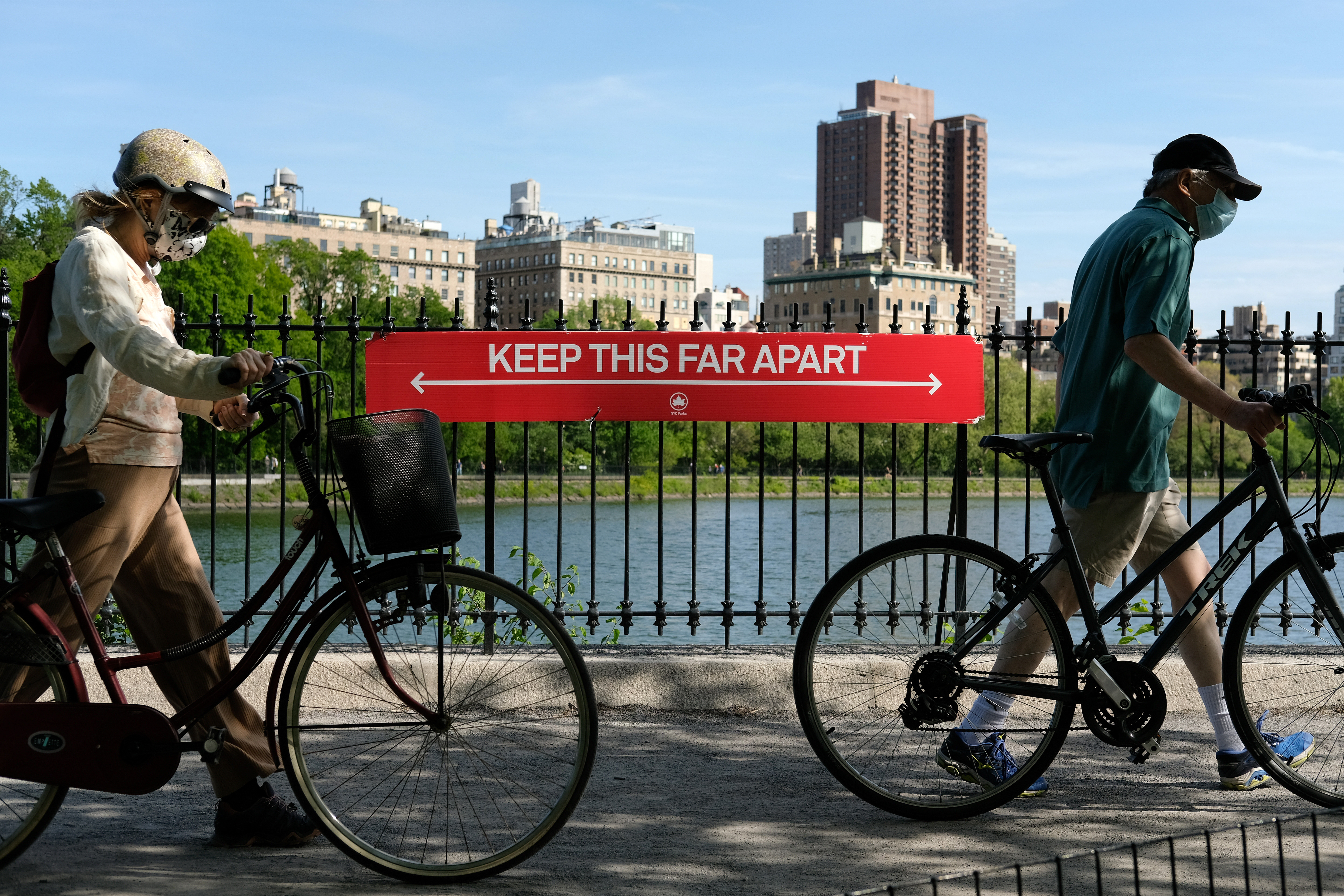Our COVID choice
We already know how to drive infections way, way down


A free daily email with the biggest news stories of the day – and the best features from TheWeek.com
You are now subscribed
Your newsletter sign-up was successful
This is the editor’s letter in the current issue of The Week magazine.
For a moment, I forgot. Karla and I were at an outdoor restaurant on a summer evening, surrounded by tables of chattering families and relaxed couples. In the waning yellow sunlight, we sipped wine, enjoyed our halibut, and soaked up the life around us. Giddy liberation was in the air. The entire main street of this small suburban town north of New York City had been closed to cars, so that restaurants, a pizza place, and an ice cream joint could set up distanced tables outside. People wore masks on sidewalks and while making their way to their tables, taking them off when they were seated. Similar successful adaptations to the pandemic can be found throughout the Northeast, where the test-positivity rate has fallen to about 1 percent and deaths and hospitalizations have plunged. The coronavirus is a formidable foe, but we now know how to minimize its person-to-person spread. How many people get sick and die between now and a vaccine is largely under our control.
"We can virtually eliminate the virus any time we decide to," says Andy Slavitt, a former head of the Centers for Medicare and Medicaid Services. Several other countries in Asia and Europe have largely done so. To undo the damage of premature re-openings in the South and West, Slavitt says, these states would need a second lockdown, closing all bars, indoor restaurants, churches, and public transit for about 50 days. Masks should be mandated, and interstate travel shut down. These policies, Slavitt calculates, would drive the reproduction rate of COVID-19 down to 0.5. Then exponential pandemic math would take over, and a community with 60,000 active cases would, 50 days later, have just 58 cases. At that point, testing and contact tracing become fast and effective. Life could safely resume, with some prudent restrictions. The alternative is now on display in ICUs in Florida, Arizona, and Texas. Will successive surges define our lives into 2021? Our choice.
The Week
Escape your echo chamber. Get the facts behind the news, plus analysis from multiple perspectives.

Sign up for The Week's Free Newsletters
From our morning news briefing to a weekly Good News Newsletter, get the best of The Week delivered directly to your inbox.
From our morning news briefing to a weekly Good News Newsletter, get the best of The Week delivered directly to your inbox.
A free daily email with the biggest news stories of the day – and the best features from TheWeek.com
William Falk is editor-in-chief of The Week, and has held that role since the magazine's first issue in 2001. He has previously been a reporter, columnist, and editor at the Gannett Westchester Newspapers and at Newsday, where he was part of two reporting teams that won Pulitzer Prizes.
-
 Switzerland could vote to cap its population
Switzerland could vote to cap its populationUnder the Radar Swiss People’s Party proposes referendum on radical anti-immigration measure to limit residents to 10 million
-
 Political cartoons for February 15
Political cartoons for February 15Cartoons Sunday's political cartoons include political ventriloquism, Europe in the middle, and more
-
 The broken water companies failing England and Wales
The broken water companies failing England and WalesExplainer With rising bills, deteriorating river health and a lack of investment, regulators face an uphill battle to stabilise the industry
-
 Epstein files topple law CEO, roil UK government
Epstein files topple law CEO, roil UK governmentSpeed Read Peter Mandelson, Britain’s former ambassador to the US, is caught up in the scandal
-
 Iran and US prepare to meet after skirmishes
Iran and US prepare to meet after skirmishesSpeed Read The incident comes amid heightened tensions in the Middle East
-
 Israel retrieves final hostage’s body from Gaza
Israel retrieves final hostage’s body from GazaSpeed Read The 24-year-old police officer was killed during the initial Hamas attack
-
 China’s Xi targets top general in growing purge
China’s Xi targets top general in growing purgeSpeed Read Zhang Youxia is being investigated over ‘grave violations’ of the law
-
 Panama and Canada are negotiating over a crucial copper mine
Panama and Canada are negotiating over a crucial copper mineIn the Spotlight Panama is set to make a final decision on the mine this summer
-
 Why Greenland’s natural resources are nearly impossible to mine
Why Greenland’s natural resources are nearly impossible to mineThe Explainer The country’s natural landscape makes the task extremely difficult
-
 Iran cuts internet as protests escalate
Iran cuts internet as protests escalateSpeed Reada Government buildings across the country have been set on fire
-
 US nabs ‘shadow’ tanker claimed by Russia
US nabs ‘shadow’ tanker claimed by RussiaSpeed Read The ship was one of two vessels seized by the US military
